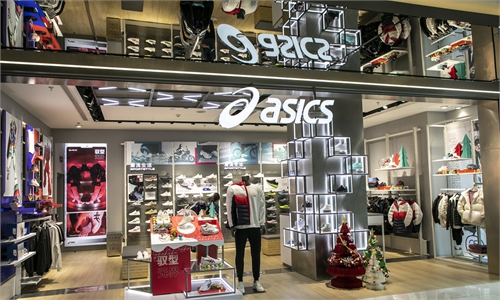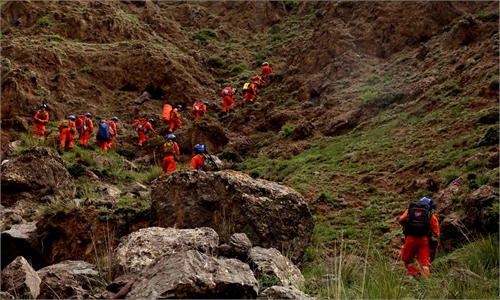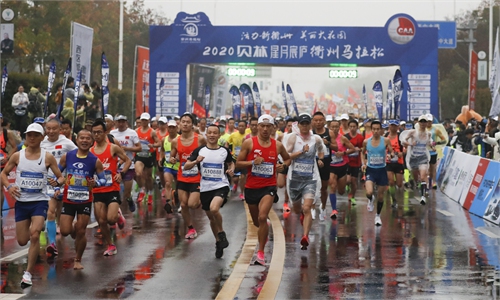Deadly cross-country race exposes hidden yet common safety problems in China’s red-hot marathon pursuit
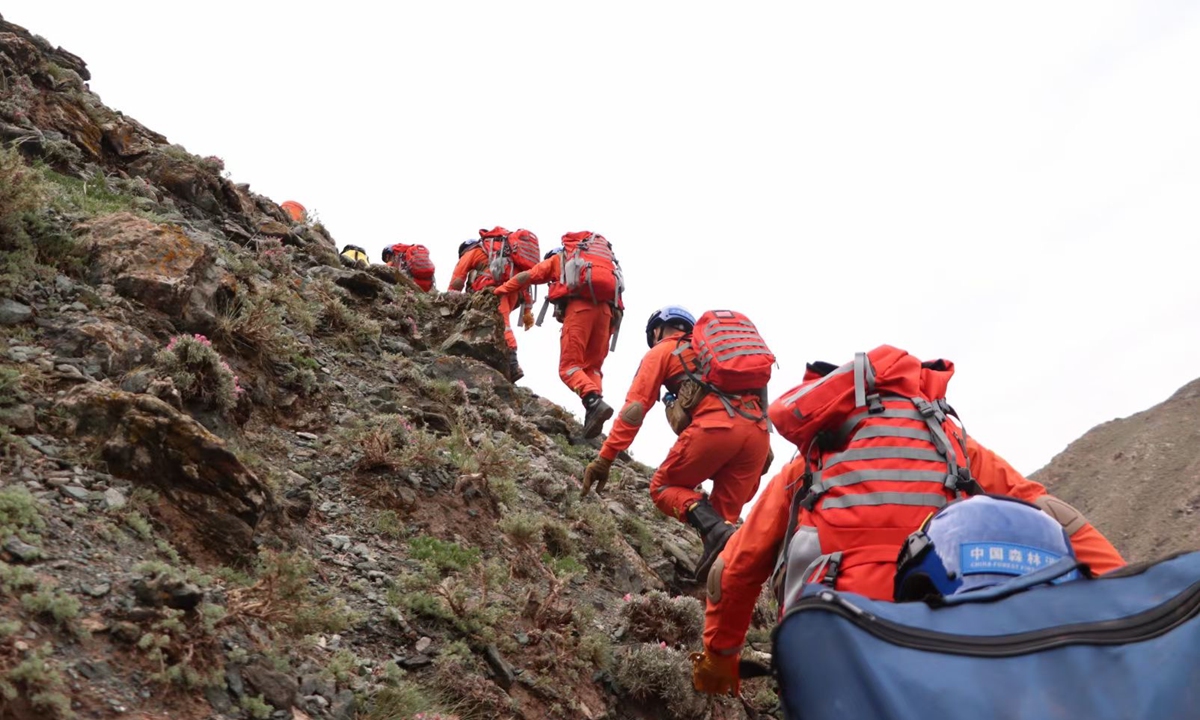
Rescue team search for victims of the deadly marathon in Baiyin, Gansu. Photo: Xinhua
The deadliest mountain ultramarathon which claimed 21 people's lives in Northwest China's Gansu Province not only ignited fury and agony among the Chinese public but also prompted a question that needs to be taken seriously: Is the Gansu case a rare unfortunate incident or does it reveal a grave situation of lack of adequate safety guarantees and assistance to runners as a common phenomenon in the country's booming marathon business?
On May 23, 21 runners out of 172 participants, including marathon stars like Liang Jing, were confirmed dead after encountering hail, freezing rain, and strong winds in their race the previous day. The runners were racing along a very narrow mountain path at an altitude of about 2,000-3,000 meters.
A worker at the local meteorological bureau said the bureau had issued a warning of strong winds and forecasts of showers one day before the race, according to The Beijing News. But the warning did not preclude the ultimately fatal leg of the race.
While it's the hypothermia that directly caused their death, several insiders in China's marathon business said the organizing committee should shoulder the main responsibility for failing to provide enough organizational, tactical, rescue, and security support for the event.
A professional rescue expert who has participated in similar races in Shandong Province told the Global Times he believed that in Gansu's case, the root cause was the organizing committee did not want to spend money on security, so they did not employ professional rescue teams to offer enough assistance during the course.
He believed that such tragedy was avoidable.
Several people familiar with the organization of marathon races told the Global Times that lack of expertise in protecting runners is not uncommon.
While there are about 4,000 organizations that provide rescue services in China, less than 1 percent of them are qualified, Li Yanzhao, head of the well-known Red Cross Blue Sky Rescue Team's Qingdao branch, told the Global Times on Monday.
On the other hand, there are not enough rescuers who can support such races which seem to only grow in popularity among the general public. In 2019, before the outbreak of the epidemic, 481 mountain races were held in the Chinese mainland, meaning more than one race held per day, read a report.
Li noted that professional rescuers are an inseparable part of the mountain race. They not only offer support for runners on mountains whenever they need it but also do an assessment of the terrain and help develop accessible routes.
"But this could be costly for the organizers," he said, adding that it's easy for them to find unprofessional organizations to provide free assistance.
Gong, a domestic senior trail and marathon runner who is also part of the guarantee committee for many domestic marathons, agreed with Li. He told the Global Times on Monday that security protection in the cross-country mountain race in China is generally poor and the main reason is the organizing committee wants to cut costs and many of them are entirely unprofessional.
"But I think the government will enforce further supervisory measures on marathons and cross-country races after the case," he added.
On Sunday, China's General Administration of Sport issued the country's sports system to further enhance safety management in sports races and optimize safety risk management mechanisms and measures, following the tragic deaths.
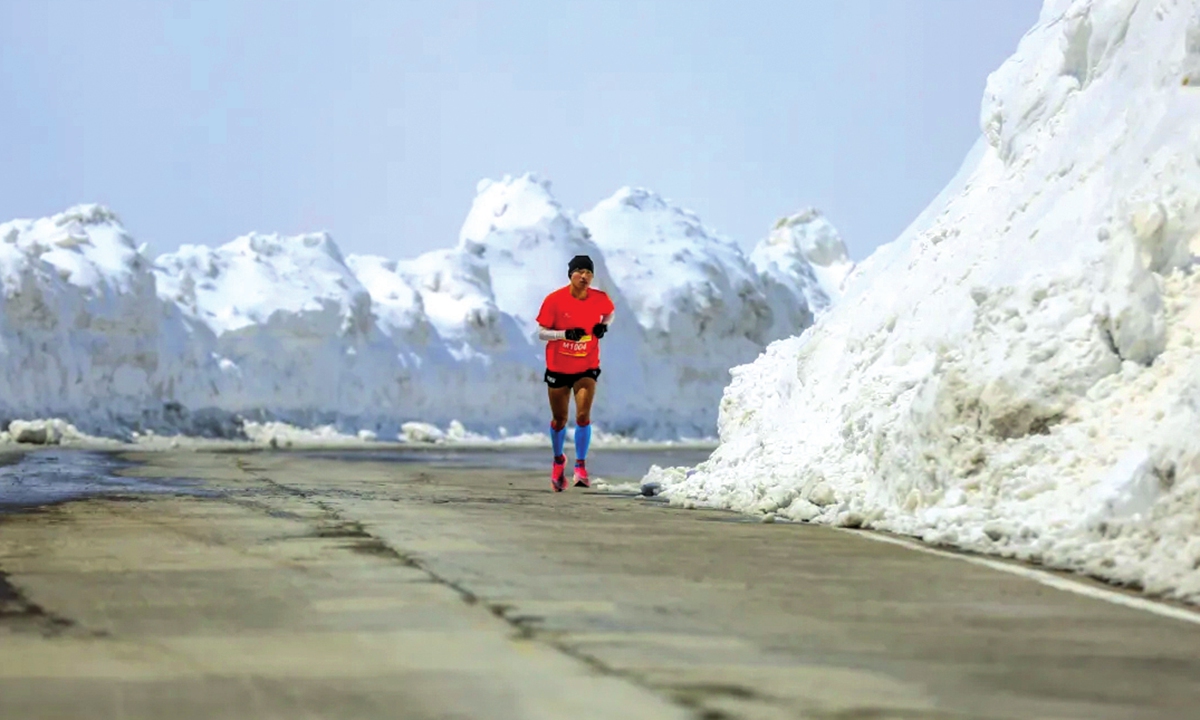
A runner participates in the mountain marathon race in Changbai Mountain, Northeast China's Jilin Province. Photo: IC
Rising demand VS poor expertise
Two decades ago, most Chinese people only got to know marathons through TV broadcasts of the Olympics. Nowadays, marathons have become commonplace for people in China and everybody has a chance to take part.
In 2014, the China Athletics Association canceled the approval requirement for regions to host marathons, and the marathon industry in China began to see a huge development. Nowadays, county-level governments and sports bureaus can hold marathons, which has supported the rise of the "marathon business" and formed a huge industrial chain.
According to a report on marathons published by the Chinese Athletics Association, in 2019, 1,828 races (on-road running with more than 800 participants, off-road, and hiking activities with more than 300 participants) were held in China, with 7.12 million people joining.
Currently, marathons are more than just a regular sport, but a business and a marathon-centered industry has been formed in China, bringing capital, as well as problems.
The main sources of income for the marathon economy in China include sponsor investment, registration fees, rents on venues and hotels, broadcasting, as well as extended cultural tourism consumption covering food, housing, transportation, travel, shopping, entertainment, and other aspects, media reported.
A 2018 survey showed each marathon runner spent 12,287 yuan on running, mainly on registration and equipment purchases, accounting for 42 and 41 percent respectively. Those on daily training and related preparation plans' payment were also required, but not as much.
As for the city marathon in which most people like to participate, the safety level is generally high as it does not require high-level expertise in security protocol. But in the mountain race, the situation is totally different, which requires stronger security reconnaissance.
In order to cut costs, some will equate the mountain race to the city marathon and will not provide further support than is necessary on mountains, said Li.
Li said that he charges about 100,000 yuan for the mountain race. He offers services including sending people to do the all-important pre-race route assessment, design possible routes, and dispatch a team of 120 people to offer support along the race route. He admitted that many organizing committees think this fee is too high and are reluctant to hire them.
"We can deploy emergency response in 10 minutes. But many others can only have the emergency response in three hours," he said, noting that time is of the essence in such races.
Some runners also noticed that in addition to rescue, in Gansu's case, the organizing committee did not carefully check what equipment the runners had taken with them.
"After this event, many marathon runners will not participate in these cross-country races anymore," Gong said.
"While the number of marathon runners in China is large, among them are few qualified for cross-country races. But as more cross-country races emerge, many organizing committees use money or other rewards to lure participants, which is not a good precedent," he said.
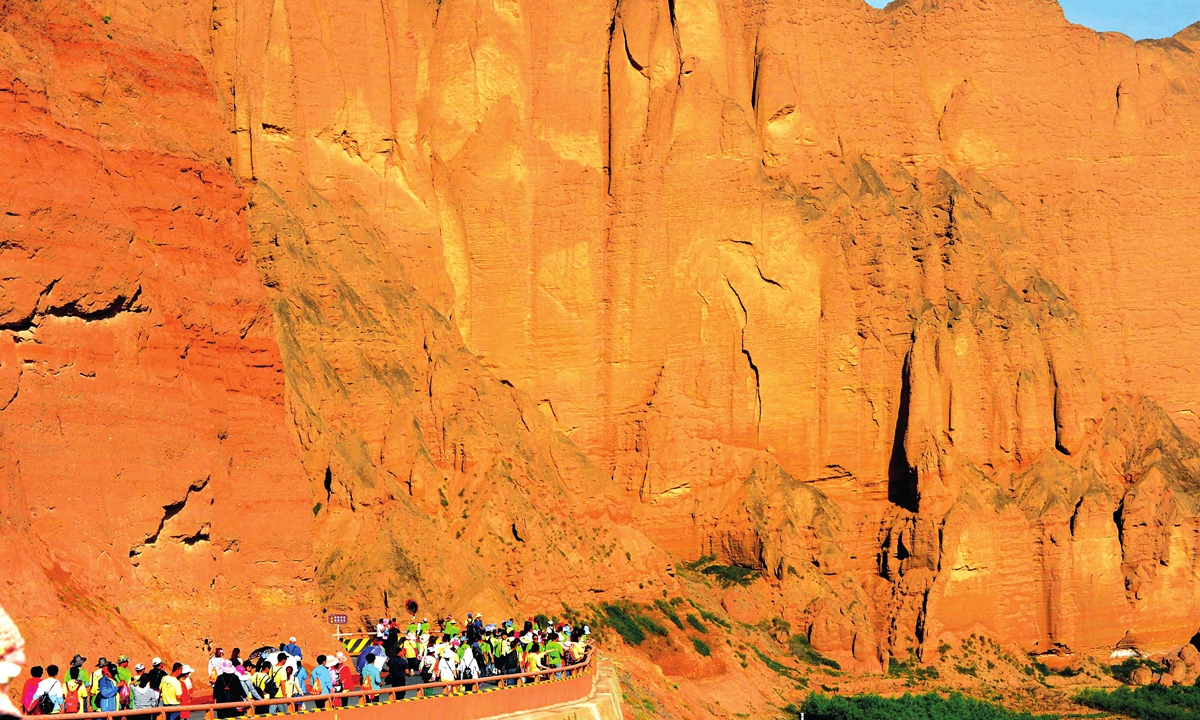
The first mountain marathon hosted in Baiyin, Northwest China's Gansu Province in May 2018 attracts a lot of tourists. Photo: IC
Chaotic market
Because of the rising number of participants, some popular marathons have to draw lots to decide who can run the event. Therefore, some runners would use any means to seize a position in a marathon event.
In 2020's Xi'an Marathon, a runner was found using another runner's number during the event and was punished. A position for a marathon could be sold. For instance, a position for this year's Xi'an Marathon is priced to up to 1,000 yuan.
In November 2019, at Shanghai Marathon, a woman was captured riding a bike along with other runners by a photographer. She again appeared in a photo crossing the finishing line, holding hands with a man. It was found out that she lacked at least two time-point results. The woman and the man were banned from the Shanghai Marathon for life.
A more bizarre scene happened on April 18 at a mountain marathon event in Southwest China's Guizhou Province. Runners recorded that the medals were robbed after the race. Videos showed many people crowding at the finish line to fight for medals. Some runners on location said that when they finished the race, they did not receive finishing giftbags and medals, and only later learned that they had been robbed.
"About these scenes of chaos, administrative departments should set laws to punish those who violate the rules," Yang Wuyou, a marathon lover from the public security department of South China's Guangdong Province, was quoted by thepaper.cn as saying. Yang suggested based on the laws, the supervision and administration of marathon events should be enhanced, and behavior that violates laws and rules should be cracked down on.
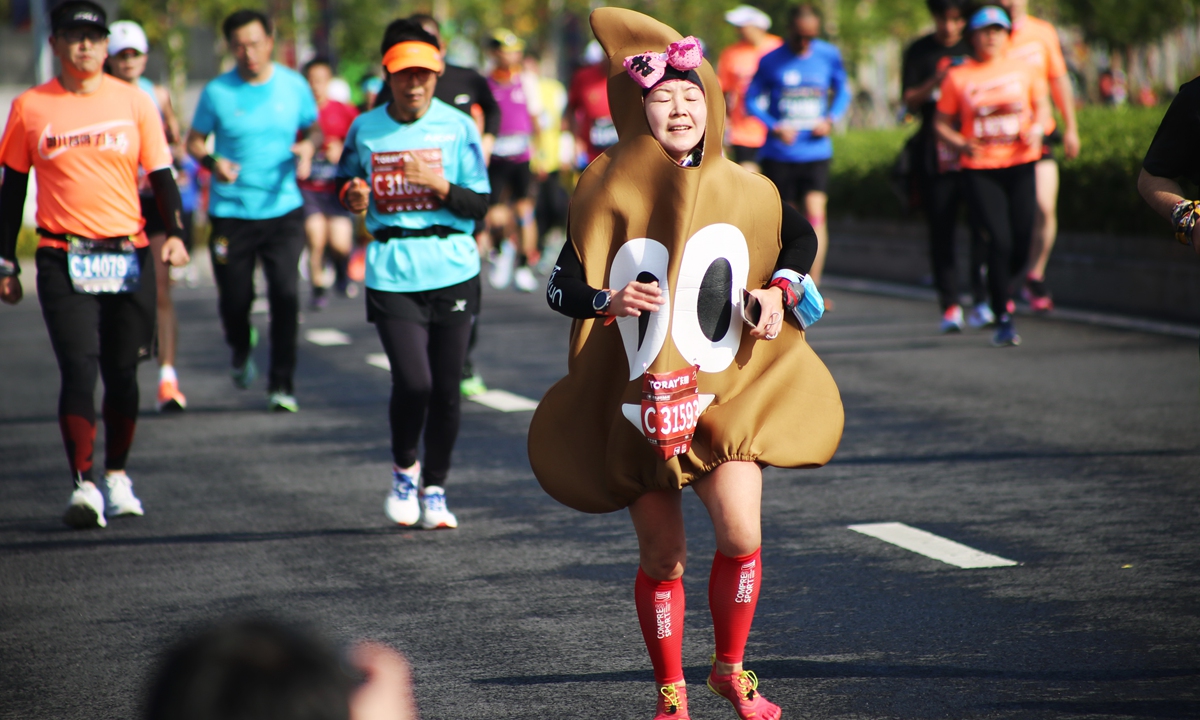
A woman dressed as a popular emoji runs during Shanghai marathon in November 2020. Photo: IC
Besides, having seen the problem revealed in Gansu's case, Gong suggested that the government should help support more security forces in important programs.
More people and government institutions have called on stricter monitoring of marathons and other high-risk sports after the incident.
"The extreme weather could not be controlled, but the supervision and administration of high-risk sports could not be left to go out of control," read an article posted on the website of the Central Commission for Discipline Inspection of the CPC on Sunday.
